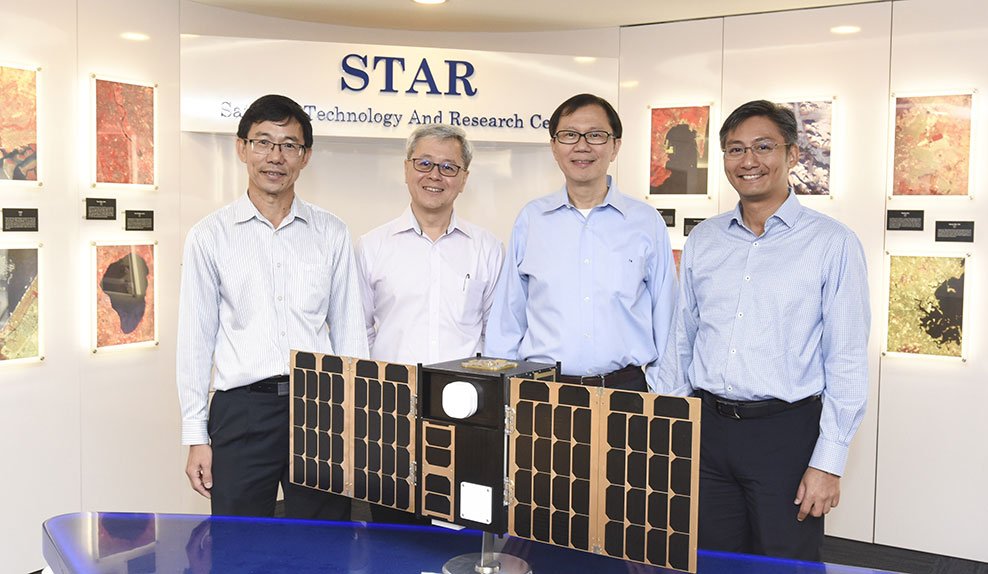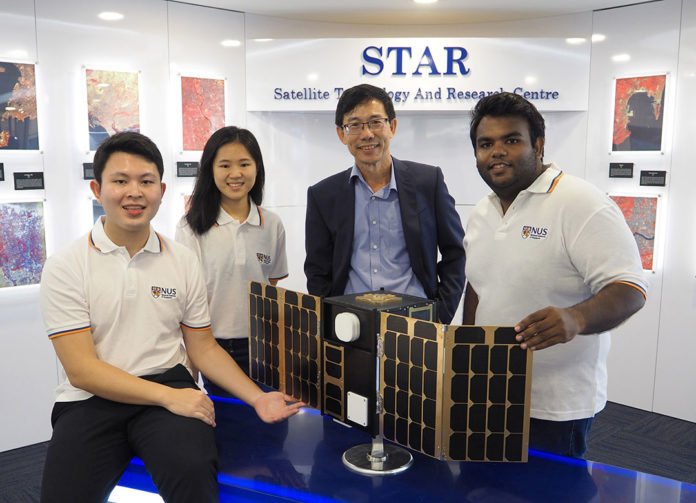The Faculty of Engineering at the National University of Singapore (NUS) in collaboration with the DSO National Laboratories (DSO) recently launched the Satellite Technology and Research Centre (STAR) to create bleeding edge capacities in appropriated satellite frameworks, with an emphasis on flying numerous little satellites in development or star grouping.
The new focus, which was introduced today by Professor Ho Teck Hua, NUS Senior Deputy President, and Provost, will likewise prepare students and graduate understudies to meet the labor needs of Singapore’s juvenile space industry.
Upheld by the Singapore Economic Development Board, STAR is helmed by Professor Low Kay Soon, who is from the Department of Electrical and Computer Engineering at the NUS Faculty of Engineering. The inside will pioneer test satellite stages, with an emphasis on the improvement of little satellites, and will extend the neighborhood base of skill in space and satellite advances.
Rather than the customary approach of building substantial satellites (weighing between a couple of hundred to a couple of thousand kilograms), STAR will manufacture numerous little satellites, each weighing short of what one-tenth of ordinary satellites, and fly them together. STAR’s 1,400 sqm office is right now home to 50 investigate staff and understudies.
Professor Chua Kee Chaing, Dean of NUS Faculty of Engineering said, “NUS made its first foray into space in 2015 with the successful launch of two satellites, which demonstrated our strong capabilities in engineering and satellite technologies. The setting up of STAR will further sharpen these strengths and help to nurture a new generation of well-trained engineers and engineer-leaders who are ready to contribute to space and aerospace industries.”

(STAR); Professor Chua Kee Chaing, Dean of NUS Faculty of Engineering; Professor Ho Teck
Hua, NUS Senior Deputy President and Provost; and Mr Cheong Chee Hoo, Chief Executive
Officer of DSO National Laboratories, at the launch of STAR.
Credit:
National University of Singapore
A boost for Singapore’s space aspirations
In the early years of humankind’s first attack into space, satellites were expansive in an estimate, to a great degree costly, and they typically take a very long time to manufacture. In any case, in the previous five years, satellites that measure close to 20 kilograms have been picking up ubiquity. This new change in outlook towards little satellites offers an open door for Singapore to cut out a place for itself as a key player in the new satellite application industry.
Little satellites are moderately less expensive to create, test and dispatch. They could likewise be mass created and they have a substantially shorter time to showcase. An armada of little satellites – flying in development, swarm or star grouping – could cover the entire Earth and diminish idleness, consequently opening up new administrations that were unrealistic before.
STAR will pursue its mission through three structured programmes:
- Education programme:
NUS undergraduate students from the Faculty of Engineering will have the opportunity to undertake satellite and space-related projects offered by STAR. Involvement in such projects will expose students to real-life project applications, and provide them with valuable multidisciplinary, team-based work experience in the space industry. STAR researchers will also support relevant academic modules, as well as supervise student projects.
- Research programme:
Researchers at STAR are conducting cutting-edge research in mission design such as collaborative sensing, as well as subsystem and component development, using a precise navigation system with highly accurate clock, highly efficient power management system, advanced control of satellite propulsion systems, and other sophisticated technology.
- Satellite mission programme:
To demonstrate its research capabilities, STAR will use its innovative satellite architecture to develop scalable small satellites of various sizes and weights for different applications. These small satellites will then be launched in space to fly in formation or constellation. STAR aims to develop a fleet of 20-kg satellites that can be deployed in space by 2022, for applications such as maritime and aerospace security. The small satellites can also be equipped with other instruments for remote sensing to monitor environmental change and detect forest fires.
STAR Director Professor Low said, “TAR aspires to be a leading center for advanced distributed satellite systems. We will build and demonstrate the use of small satellites for various applications, such as detection and monitoring of airplanes and ships.”
“Such capabilities will greatly enhance Singapore’s position as an aerospace and maritime hub. STAR will also work with industry players, both established companies and new start-ups, by providing our expertise and state-of-the-art satellite platform or subsystems. Such partnerships are critical in building a vibrant indigenous high-tech satellite industry.”
“Anchored at NUS, STAR will serve as a hub for research, education, and commercialization of expertise and technologies relating to the space industry. For Singapore to gain a strong foothold in this knowledge-intensive sector, it is crucial to develop a vibrant space innovation ecosystem comprising a critical mass of home-grown talents, a thriving space industry, as well as a conducive research environment where scientists, engineers, and industry partners jointly innovate and create new technologies to address satellite technology challenges. Leveraging STAR’s capabilities, NUS Engineering can play a key role in shaping Singapore’s future as a space-tech leader.”
Mr. Cheong Chee Hoo, Chief Executive Officer of DSO said, “Satellite engineering is the pinnacle of engineering. As a national laboratory, DSO has developed strong capabilities in systems engineering, and we are excited to be able to contribute our expertise in this field to the vision of STAR – a leading center for advanced distributed small satellite systems – to excite and nurture students to be future satellite engineers.”
